I don’t usually blog about speed games, but I played one on Friday night against Gjon Feinstein that was pretty darned entertaining…
First, you have to understand that Gjon beats me about 90 percent of the time in speed chess. However, this game was the exception that proves the rule. I played a dubious gambit, but he defended a little bit carelessly. I threw a bunch of sacrifices at him, and for a change, it worked!
Except that when we got to the final position, where I am winning by force, I chose to go for a draw by repetition. The reason is that I was by then down to about 30 seconds. However, this was not a case of a rational decision: “I have only 30 seconds left, so even if I play the right line I might not have time to finish him off.” No, it was a decision made in ultra-panic mode. “OMG, I have 30 seconds left and I can’t see a forced win, so I’ll take the obvious draw.”
Dana Mackenzie — Gjon Feinstein
(G/7 + 2 second delay)
1. d4 d6 2. Nf3 f5
I’m sure Gjon has his reasons for going into the Dutch Defense with this move order. Perhaps one of his reasons is to avoid the Staunton Gambit. If so, he was mistaken!
3. e4?! …
Really doubtful here, mostly because the knight gets hung out to dry on g5. However, all gambits are sound in speed chess.
3. … fe 4. Ng5 Nf6 5. Nc3 d5 6. Bf4? …
Pointless. Rybka likes 6. Be2 better. Rybka also liked 5. f3 better, resolving the situation in the center right away.
6. … h6! 7. Nh3 Be6 8. Be2 g5 9. Be5 Bf7
The last three moves provide an interesting contrast of human versus machine judgement. Rybka prefers 7. … Bxh3 to 7. … Be6 and also likes several moves, such as 9. … Qd7 or 9. … Bg7, better than 9. … Bf7. But I’m sure Gjon felt that Black’s big problem is his weakness on the light squares. So it makes no sense to give up the light-squared bishop. with 7. … Bxh3. Instead, he plays a pair of moves, 7. … Be6 and 9. … Bf7, that are designed to keep that bishop and give it an active role in the defense of the kingside. Rybka thinks that Black should just get his pieces out as quickly as possible. But Rybka also is OK with such things as losing castling privileges, which most humans (including Gjon) would rather not do.
FEN: rn1qkb1r/ppp1pb2/5n1p/3pB1p1/3Pp3/2N4N/PPP1BPPP/R2QK2R w KQkq – 0 10
10. O-O Qd7?!
This time the query is both mine and Rybka’s. I wasn’t quite sure what Gjon was trying to do with … Qd7, and Rybka says that 10. … Nbd7 11. f3 ef 12. Bxf3 c6 is the way for Black to maintain a slight (half-pawn) advantage.
11. f3 ef 12. Bxf3 Nc6
Now this comes a little bit too late.
13. Bxf6 ef 14. Bg4 Qd8 15. Qe2+ …
FEN: r2qkb1r/ppp2b2/2n2p1p/3p2p1/3P2B1/2N4N/PPP1Q1PP/R4RK1 b kq – 0 15
15. … Qe7?
I’m sure that Gjon didn’t play 15. … Be7 because 16. Rxf6 wins back the pawn for White. However, it’s not that simple. After 15. … Be7 16. Rxf6 O-O! 17. Rxh6 Kg7! White’s rook is trapped, and also … Nxd4 is threatened. So White has to sac the exchange with 18. Rxc6 bc, after which it’s still a game. The text move should have lost.
16. Qf2! h5!
This was a nice move in dire circumstances. An interesting variation found by Rybka is 16. … Qb4 17. Nb5!! Qxb5 18. Qxf6, which I almost certainly would not have found in speed chess.
17. Rae1! …
More Rybka analysis: If 17. Bf5? now 17. … Qb4! =. White no longer has the resource 18. Nb5 because his queen can’t take on f6. So Gjon’s 16. … h5 actually had a good point to it.
17. … hg
And now it’s time for my big misstep.
FEN: r3kb1r/ppp1qb2/2n2p2/3p2p1/3P2p1/2N4N/PPP2QPP/4RRK1 w kq – 0 18
Here I played 18. Rxe7+? Well, wouldn’t you? How can winning a queen be bad?
The problem is that I forgot the old adage, “If you see a good move, look for a better one.” There is no hurry to win Black’s queen; it can’t go away. Instead, I should try to increase my advantage, to twist the knife in my opponent’s side. And when you look at it that way, you see that 18. Qxf6! is absolutely annihilating. Black’s only hope is 18. … O-O-O, but now 19. Rxe7 Bxe7 20. Qxf7 and Rybka gives White a more than 2-pawn advantage.
In speed chess there is a tendency to play “automatic moves” and not look for the subtle refinements, and that was certainly the case with 18. Rxe7+.
18. … Bxe7 19. Nxg5 Bg8!
FEN: r3k1br/ppp1b3/2n2p2/3p2N1/3P2p1/2N5/PPP2QPP/5RK1 w kq – 0 20
The knight is still trapped! This is why 18. Qxf6 was better. In that line White wins the bishop for the knight; in this line White is obliged to sacrifice the knight. Kudos to Gjon for finding this ingenious defense.
I was a little dismayed with the turn of events, but decided that keeping Black’s king in the center had to be the best idea.
20. Qf5 fg 21. Nb5?! …
Not thinking objectively here. 21. Nxd5 Bxd5 22. Qxd5 is about equal, but I didn’t want to trade pieces and make Gjon’s defense easier. Perhaps for a speed game this was the right decision. For a regular game, probably not.
21. … Kd8 22. Re1 …
The move Qg6 didn’t seem to be going anywhere, and I had to keep the initiative going somehow. Fortunately I was rewarded when Gjon played 22. … Bh7? 23. Qxd5+ Kc8 (diagram)
FEN: r1k4r/ppp1b2b/2n5/1N1Q2p1/3P2p1/8/PPP3PP/4R1K1 w – – 0 24
White to play and win. You have 30 seconds left for the game, or maybe 45 seconds at this point. Go!
24. Rxe7! Nxe7 25. Qe5!
I suspect that this is what Gjon missed.
25. … Kd7 26. Qxc7+ Ke6 27. Qe5+ Kd7
FEN: r6r/pp1kn2b/8/1N2Q1p1/3P2p1/8/PPP3PP/6K1 w – – 0 28
Here if I had just kept my wits about me, I would have seen that 28. Qd6+ Ke8 29. Nc7+ Kf7 30. Qe6+! is winning, because I win a full rook. Admittedly, there would still have been the challenge of winning a not completely trivial endgame in 30 seconds. However, as I said in the beginning, that didn’t enter into my thoughts at all. I just plain missed 30. Qe6+, and I missed it because I was too panicky. Instead I played 28. Qc7+ ½-½ ?? and offered a draw. (Technically, it’s actually the draw offer rather than the move that is a blunder. But really, they should be considered a package deal.) Gjon accepted, of course, not that he had very much choice.
Oh well… “It’s only speed chess.” This is what I used to say in the Raleigh Chess Club when I messed up a speed game, and because I’m not a great speed player, I had many occasions to say it. I said it often enough that I even started being known for that phrase. The late Bernie Schmidt used to say it for me even before I had a chance to get the words out!
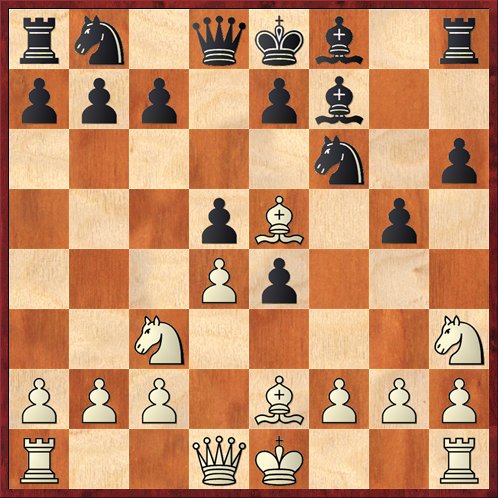
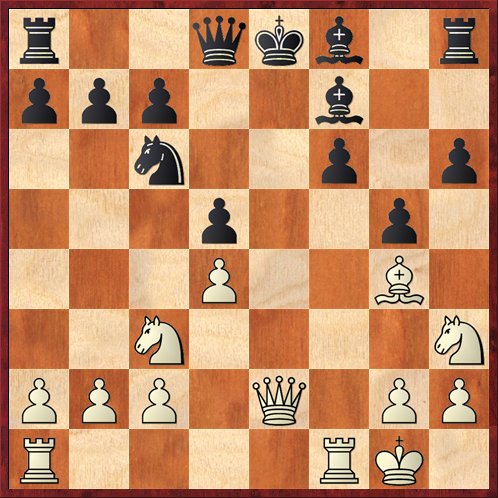
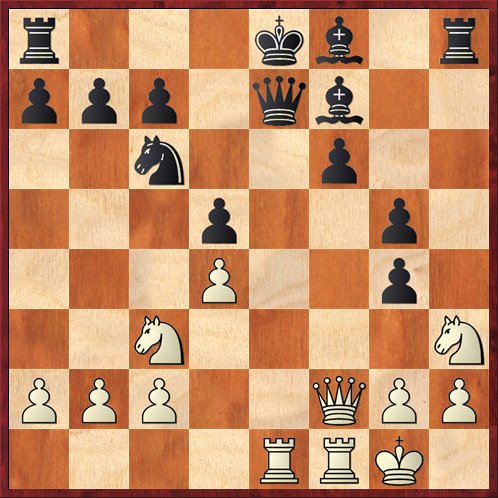
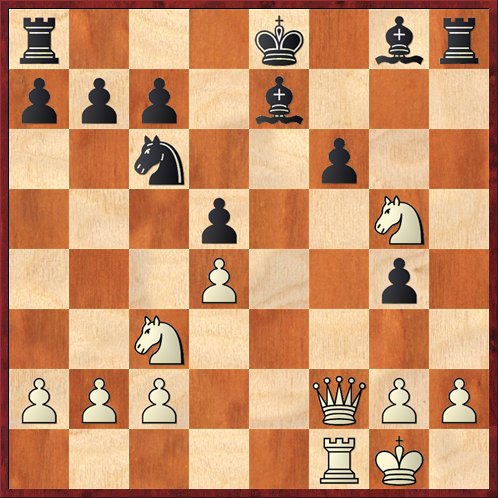
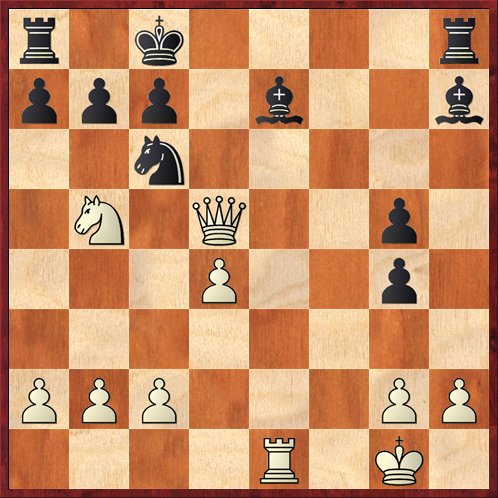
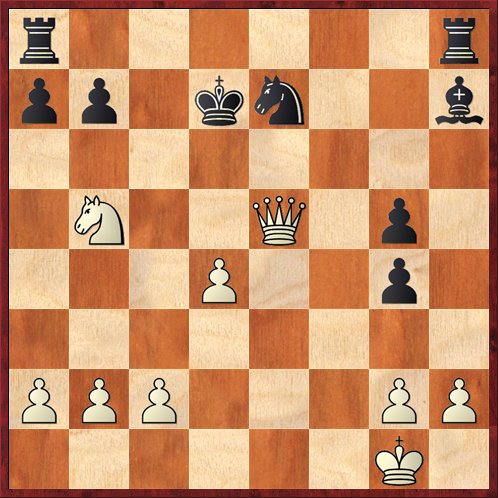



{ 1 trackback }